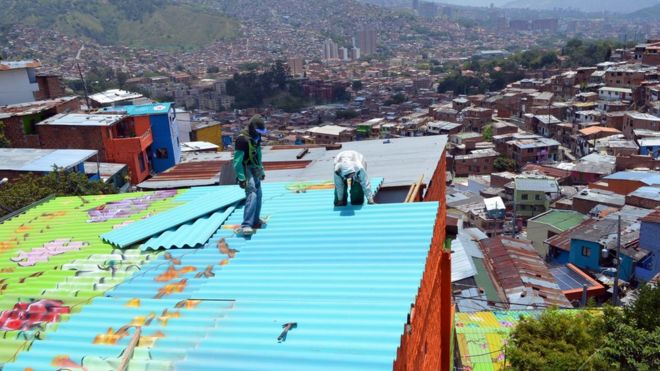UN Habitat III summit aims to shape future urban living

By Mark Kinver
Environment reporter, BBC News
UN Secretary General Ban Ki-moon has called on city leaders to make "tough decisions" in order to provide safe and sustainable cities in the future.
Mr Ban made his remarks in an address at the UN Habitat III conference that is only held once every 20 years.
Many urban areas, which are home to more than half of the world population, continue to grow unplanned and unregulated, experts warn.
An estimated 35,000 people attended the three-day gathering in Quito, Ecuador.
--more--
http://www.bbc.com/news/science-environment-37722514
Dense urban settings like the one pictured above have the lowest overall environmental footprint of any human lifestyle. That's why such cities are expanding so rapidly; it's the most economical way to live.
It may seem like sewage going untreated is a horrible thing, and it is, but the environmental footprint of someone living in such a city is hardly any worse than that of some "ranchette" owner in California who has a septic system, a few horses, and an SUV and big pickup truck parked in their garage.
People living in a place they can call their own is a good thing, even if it's a shack or small apartment. Basic city services ought to be sewage treatment, clean water, basic lighting and other small electrical services, clean cooking fuels, and building codes sufficient to minimize fire, earthquake, and storm damage.
Unfortunately, to the affluent 1%, unplanned and unregulated is a horrible thing, and their redevlopment projects tend to displace people they don't like, frequently in very racist ways.
Modern technology such as LED lighting, cell phones, solid state power systems, and plastic pipe, have made urban infrastructure much less expensive than it has been in the past.
As people become more comfortable and better educated population growth tends to be negative.
A city like the one pictured above may not look attractive to the affluent 1% of the world's population, but for most humans that's home.
Any improvements to such communities must benefit the people who already live there without displacing them. That's a difficult thing to do.
Telling corrupt developers and urban elite to fuck off may be one of "tough decisions" scrupulous urban planners have to make.
